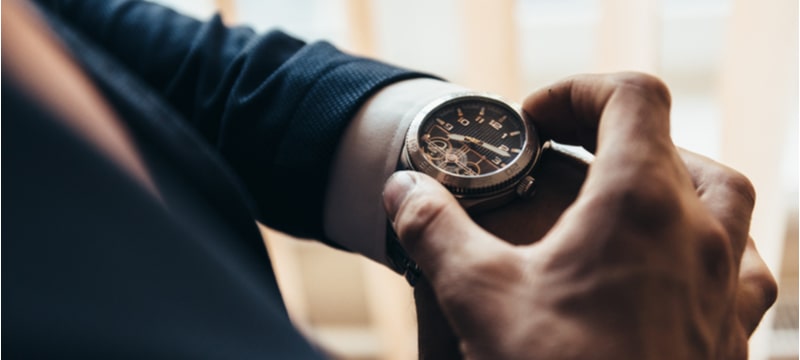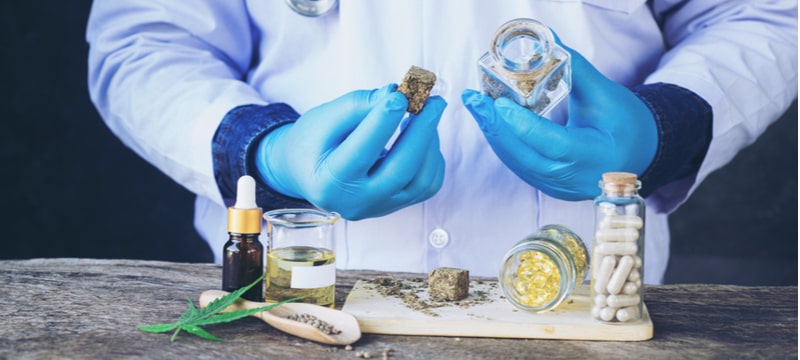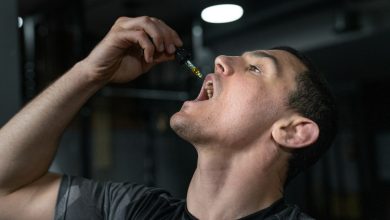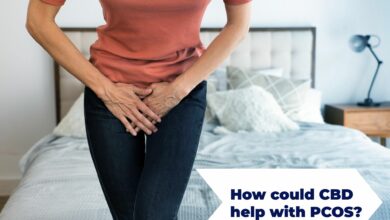
How long does cannabis stay in your system, is a frequently asked question. The amount of time cannabidiol (CBD) oil stays in your system is dependent on lots of factors, but from your last dose of CBD, it’s safe to say it would have most likely left your system after a week, probably less.
Table of Contents
How long does cannabis stay in your system?
It’s thought that a single dose of CBD will leave your system after about a day, but more regular CBD users would need to wait about a week for the compound to leave your system completely. Like any substance, the more you use it, the more it builds up in your system and the longer it will take for your system to be completely free from it.
If you’re a very frequent and heavy user of CBD, let’s say 10 mg per day for a number of weeks, it could even linger in your system for up to two weeks. However, a more likely time-frame is a seven day exit period from the last dose.
Another important thing to note is that even this seven-day time frame could vary from person to person for other reasons. Let’s take a look at some of the factors which affect these time-frames.
How long does CBD stay active in your system — The factors
1. Metabolism—everybody’s metabolism, the way your system processes external substances is different.
2. How You Consume CBD—Different methods of consumption like inhalation or ingestion take different amounts of time for your body to process.
3. How regularly you use CBD
4. Dosage
5. Your age—your metabolism slows down with age.
Half-life of CBD
Let’s look at the half-life of CBD to help us determine how long does cannabidiol stay in the system. This can reasonably indicate the amount of time it will take for any substance to leave your system. The half-life of a compound is the length of time it takes for the concentration of any substance to decrease to half of its starting dose in the body. A study conducted in 1991 and published in Pharmacology, Biochemistry, and Behaviour found that the half-life of CBD elimination was about 2-5 days.
This was a high-dose study conducted on people suffering from Huntington’s disease which tells us that the half-life of CBD is much shorter for low-dose, infrequent users. This is how the half-life elimination of CBD functions. The half-life of 10 mg CBD can broadly be assumed to be 3 hours.
1. An hour after taking a dose, CBD will reach peak concentration of 10 mg
2. After three hours, only 5 mg of CBD should show up in the system.
3. After six hours only 2.5 mg of CBD should show up in the system.
4. After nine hours, this reduces to 1.25 mg
5. After twelve hours, there should be roughly 0.62 mg of CBD is left in the system.
If CBD is smoked or vaporised, it has in or around a 30-hour half-life, while ingesting CBD could increase the half-life to 2-5 days. How you consume CBD will also affect something called bioavailability which you’ll also need to understand.
Bioavailability of CBD
Bioavailability is both the speed and percentage by which a compound is absorbed by your body and reaches the systemic circulation. For example, if a compound is intravenously taken(injected into the veins) it would be 100% bioavailable. The different ways you can consume CBD have different percentages of bioavailability. How long does cannabidiol stay in your system; is a question hugely influenced by bioavailability.
For instance, smoking or inhaling CBD oil, hemp oil or CBD flower has around 30% bioavailability (absorption into your bloodstream) while eating an edible CBD product 13-19% per cent bioavailable and as such it also takes much longer to take effect. Let’s take a look at the different ways CBD can be consumed and how this will affect a person’s reaction and the half-life of the compound in the system.
How long does Cannabidiol oil stay in your system when Ingested?
Ingesting CBD simply means eating, drinking it or consuming it orally. It could mean taking a dose of tincture or oil or adding it to food, swallowing a capsule, chewing a gummy or eating an edible. Edible or orally consumed CBD has a low bioavailability of around 4-12%. CBD taken orally is processed through the metabolism and must pass through the liver and gut before it reaches your bloodstream. It passes through the liver enzymes. This is ‘first-pass’ metabolism. The low bioavailability of ingested CBD is largely attributed to the first-pass metabolism of being processed by the liver enzymes.
- How long does it take for the effects to kick in?
It could take up to an hour or more for you to feel the effects.
- How long do the effects last?
The effects last from 2 to 4 hours depending on the dosage.
- How long does CBD stay in your system if you ingest it?
It typically stays in your system for 5 to 7 days.
Sublingual CBD administration
Although sublingual administration could easily be confused with taking CBD orally it’s not the same thing. Sublingual administration means taking the CBD under your tongue and holding it there for at least two minutes, ideally four. This gives it enough time to be absorbed by the mucous membrane under your tongue. When taken in this way, the CBD oil or tincture directly bypasses the gut and the liver, meaning it doesn’t have to ‘first-pass’ through your metabolism and get processed by the liver enzymes.
- How long does it take for the effects to begin?
It could take about fifteen minutes.
- How long do the effects last?
The effects last from 2 to 4 hours depending on the dosage.
- How long does ingested Cannabidiol stay in your system when taken sublingually?
It typically stays in your system for 2 to 5 days.
How long does Cannabidiol oil stay in your system when smoking or vaping?
Smoking or vaping CBD oil or smokable hemp flower is one of the most bioavailable ways you can consume CBD or hemp. The reason for this is because inhaling or vaping anything brings it directly into your lungs. It is absorbed by the small capillaries in the lungs and transferred directly into the bloodstream.
The approximate bioavailability of smoking or vaping CBD or hemp is 31%. It’s absorbed into the bloodstream at a much higher percentage than when ingested. It also means it leaves the system faster.
- How long does it take for the effects to begin?
You could feel the effects almost instantaneously or it may take up to 15 minutes.
- How long do the effects last?
The effects could last an hour maybe two.
- How long does Cannabidiol stay in your system when inhaled?
It typically stays in your system 36 hours.
Topical application
When you apply CBD topically—like lotions, creams or massage oils—they will enter through the skin via something called the trans-follicular (the hair follicles) route into the sebaceous gland.
Topical application treats the symptoms of localised pain or inflammation. This means topically applied CBD doesn’t reach the bloodstream.
- How long does it take for the effects to begin?
It could take at least an hour.
- How long do the effects of topically-applied CBD last?
The effects could last 2 to 4 hours.
- How long does Cannabidiol stay in your system when applied topically?
It typically stays in your system up to a week.
How long does Hemp stay in your system?
Taking hemp is a popular way to take CBD. In many products, CBD can be isolated and extracted, but with hemp, you’re getting the full spectrum of the hemp plant. This means you get lots of other useful cannabinoids, flavonoids and terpenes. So how long does hemp oil stay in your system?
Cannabigerol (CBG), cannabichromene (CBC) and cannabinol (CBN) are the other cannabinoids that make up the biggest percentage of full-spectrum hemp. Digestive issues like glaucoma and insomnia are just some of the issues they can help with. With full-spectrum hemp, or hemp seed oil you get all the effects of CBD combined with all those other compounds.
You can smoke it, vape it, take it as a tincture and all the other usual ways you can consume CBD. All the compounds in the cannabis plant perform better when in combination with each other than when they’re taken alone. One thing people who prefer to take hemp over isolated CBD may worry about is the presence of THC.
They might worry about CBD or indeed, trace amounts of THC triggering a positive result in a drug test. Let’s take a look at how unlikely it would be for either CBD or THC to show up on a drug test if you take hemp as a supplement.
Does CBD appear on a drug test?
CBD, completely isolated would not trigger a positive drug test for a couple of reasons. Most drug tests are testing for specific things like THC or other psychotropic, recreational substances.
Does Hemp appear on a drug test?
Most full-spectrum hemp products contain 0.3% or less THC in accordance with the law. This is an incredibly low percentage that is very unlikely to trigger a positive result for THC in a drug test. Some CBD fans may feel concerns that taking full-spectrum hemp could cause them to fail a drug test. This would be incredibly unlikely. You would need to take a huge dose of hemp—something in the region of 1000-2000 mg over many days—for there to be even a chance of this.
For those who want to exercise a little extra caution, it’s entirely possible to buy CBD with zero THC. You can pick up broad-spectrum oils or CBD isolate products. Broad-spectrum oils are refined with THC removed. CBD isolates contain no cannabinoids other than CBD so there will be no THC. No matter what type of CBD you choose, you should always look for CBD or hemp that has been third-party tested and certified.
Conclusion
There are many reasons people need to know how long CBD stays in the system. There could be concerns about CBD interacting with other medications. Or perhaps people who take full-spectrum hemp worry about the unlikely event of THC appearing in random drug tests.
If you really want to be sure that CBD or cannabinoids from hemp have left your system, it's probably best to give it a week. It can, of course, leave the system much, much sooner. However, it's always to exercise caution. Nobody knows how their body type or other biological factors affect the processing of substances within it.
Whatever the reason you want to find out more about how long CBD stays in your system. Our advice is to pick high-quality CBD and hemp products that have been rigorously tested and certified.





